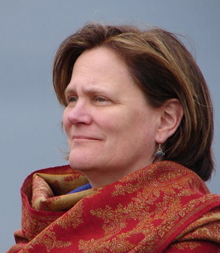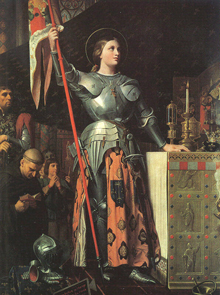Emory theologian Wendy Farley has two answers for why there are more women theologians today than ever before.

Wendy Farley
First, she points out that things change all the time, although not as fast as some women theologians, herself included, would like. Second, "we don't have an Inquisition anymore," a joking reference to the ecclesial tribunals of the past that saw women and theology as a dangerous mix.
"One reason you don't have many women's theological writings is that most of them [women theologians] were threatened with being burned at the stake," she says.
Women have had access to university educations for a bit more than 100 years, and in the last few decades the numbers of women theologians and biblical scholars has exploded, says Farley. "Who would ever have thought that half of today's seminary students would be women?"
Many of those seminarians are turning to women theologians for a new take on the implicit orthodoxy of Christianity. Farley is in the middle of that movement, having co-edited an anthology of works by her former students: "Women, Writing, Theology: Transforming a Tradition of Exclusion."
The volume includes essays about women who struggled against authority structures that were "more or less violently opposed to them speaking, teaching, writing, thinking, or preaching, but who found cracks through which to write their vision of what Christianity could be," says Farley. Now contemporary women theologians are taking up the work of their forerunners, recovering their ideas from theological and historical abandonment.
Farley's theology was the subject of a recent session at the annual American Academy of Religion (AAR) meeting in Chicago, its title provocative: "Erotic Faith: Desire, Suffering and Transformation in the Incarnational Theology of Wendy Farley."

Farley says women who addressed theological questions were considered dangerous and sometimes burned as heretics, such as Joan of Arc.
"The title is a combination of every term I've ever written," jokes Farley. But she has coined a fair share of terms that intend to push the boundaries of theological discourse. "I think that Christian theology has a narrow band," she says. "We operate inside that band and that band does not reflect the full richness of our tradition or of our scripture."
For example, Farley uses the term "Divine Eros" instead of "God." Why? "Because when we say 'God,' we think 'Sistine Chapel' or 'man/beard.'" Instead, Farley uses language for God that "interrupts our assumptions."
"I do not think much in terms of sin and guilt," says Farley. "I think the human condition is so poignant, so full of suffering. I feel compassion for the human race and all of the screwed up things we do to ourselves and to one another.
"What I emphasize is this desire for goodness, which can keep us ethically, spiritually moving, even if things are really tough, even if our life is in disorder, even if the things we used to believe about God we can't believe anymore.
